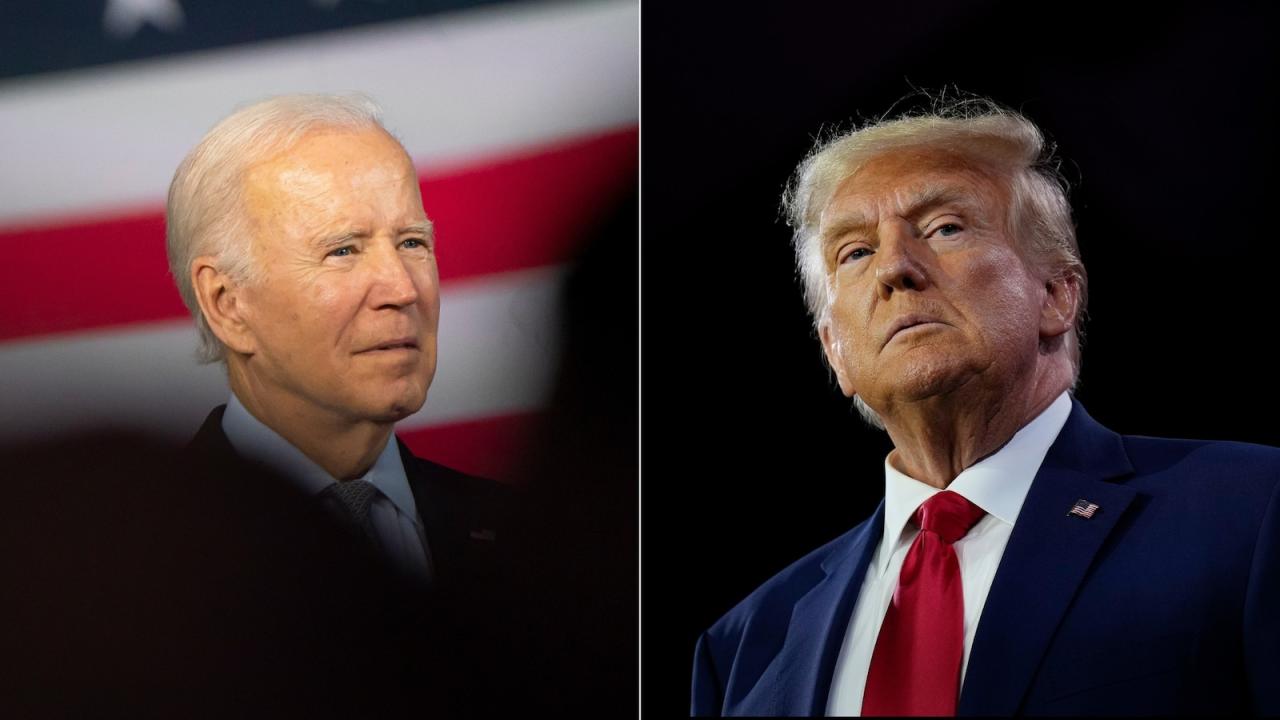
Biden Orders Up More Socialist Government?
Biden Orders Up More Socialist Government? This statement, often thrown around in political discourse, sparks heated debate. Is it a fair assessment of the Biden administration’s policies, or is it a loaded term used to stir up controversy? This blog delves into the complexities of this claim, examining the specific policies labeled “socialist,” their historical context, and their potential economic and social impacts.
We’ll explore the arguments for and against these policies, analyze public perception, and consider the role of media in shaping our understanding of socialism. By examining the facts and diverse perspectives, we can navigate this charged debate and form our own informed opinions.
Biden’s Policies and Socialism: Biden Orders Up More Socialist Government
The term “socialism” has been frequently used to describe certain policies of the Biden administration, sparking debate about the nature and extent of these policies’ alignment with traditional socialist ideology. While the Biden administration has not explicitly declared itself socialist, some of its policies have been criticized as being socialist in nature.
This section explores specific policies labeled as “socialist” and examines their intended outcomes and potential connections to socialist principles.
Examples of Biden’s Policies Labeled as “Socialist”
The following are some of the Biden administration’s policies that have been labeled as “socialist”:
- The American Rescue Plan Act of 2021:This legislation provided significant economic relief during the COVID-19 pandemic, including direct payments to individuals, expanded unemployment benefits, and funding for state and local governments. Critics have argued that these measures, particularly the direct payments, constitute a form of “socialist redistribution” of wealth.
- The Build Back Better Act:This proposed legislation, while not passed in its entirety, aimed to address climate change, expand access to affordable healthcare, and provide universal pre-K education. The Act’s proponents argue that these investments are necessary to create a more equitable and sustainable society.
However, opponents have criticized the Act’s cost and its potential for increasing government intervention in the economy.
- Expansion of Medicare:The Biden administration has proposed expanding Medicare to cover dental, vision, and hearing benefits. Critics argue that this would be a significant expansion of government-run healthcare and a step towards a single-payer system, a hallmark of socialist healthcare.
- Increased Minimum Wage:The Biden administration has supported raising the federal minimum wage to $15 per hour. This proposal has been met with opposition from businesses who argue that it would lead to job losses and higher prices. Proponents argue that a higher minimum wage would boost the economy and reduce poverty.
While Biden pushes for more government control and socialist policies, Florida Governor Ron DeSantis is taking a different approach. He’s just won control of Disney’s special self-governing district, ushering in a new era of accountability for the entertainment giant. This move signals a shift in power dynamics and raises questions about the future of corporate influence in politics, a stark contrast to Biden’s vision for a more centralized government.
Intended Outcomes of Biden’s Policies
The Biden administration has framed its policies as a means to address key societal challenges, including economic inequality, climate change, and healthcare access. The intended outcomes of these policies include:
- Reducing Economic Inequality:Policies such as the American Rescue Plan Act and the Build Back Better Act aim to provide economic relief to low- and middle-income families, potentially reducing income inequality.
- Expanding Access to Affordable Healthcare:The expansion of Medicare and other healthcare initiatives aim to provide more Americans with access to affordable healthcare, particularly for those who are currently uninsured or underinsured.
- Addressing Climate Change:The Build Back Better Act included significant investments in renewable energy and other climate-friendly initiatives. The Biden administration has also implemented policies aimed at reducing greenhouse gas emissions.
- Creating Jobs and Economic Growth:The Biden administration argues that its policies will stimulate economic growth and create jobs, particularly in areas such as clean energy and infrastructure.
Alignment with Socialist Ideology
The question of whether Biden’s policies align with socialist ideology is complex and subject to debate. Some key tenets of socialism include:
“Social ownership of the means of production”
Biden’s recent actions, like pushing for more government intervention in the economy, are causing a lot of concern among many Americans. This trend towards a more socialist approach is further exemplified by the recent omnibus bill, which has been slammed by the Gun Owners of America for advancing Biden’s gun control agenda.
It seems like the administration is determined to expand the government’s role in every aspect of our lives, which raises serious questions about the future of individual liberties and economic freedom.
“Distribution of wealth according to need”
“Economic equality”
“Socialist planning”
While some of Biden’s policies, such as the expansion of Medicare and the support for a higher minimum wage, could be seen as aligning with certain socialist principles, they do not necessarily represent a full embrace of socialist ideology. For example, Biden’s policies do not advocate for the nationalization of industries or the complete abolition of private property, which are key tenets of traditional socialism.
While Biden’s latest executive orders continue to push the US further down the road of socialist government, the ripple effects are already being felt globally. The recent decline in US retail sales, as reported in this article , has weakened Chinese export growth, highlighting the interconnectedness of the global economy.
It’s a stark reminder that Biden’s policies, however well-intentioned, have the potential to impact not just American citizens, but the world at large.
Historical Context of Socialism in the United States

The United States has a long and complex history with socialist ideas and movements. While socialism has often been viewed as a radical ideology, it has also played a significant role in shaping American political and social landscapes. This history provides a crucial context for understanding contemporary debates surrounding socialism in the U.S.
Early Socialist Movements
The emergence of socialist ideas in the U.S. can be traced back to the 19th century. The Industrial Revolution, with its rapid urbanization and the rise of industrial capitalism, led to widespread poverty, inequality, and worker exploitation. These conditions fostered the growth of socialist movements, which sought to address these issues through collective ownership and control of the means of production.
Early socialist organizations, such as the National Labor Union (1866) and the Socialist Labor Party of America (1876), advocated for worker rights, labor unions, and a more equitable distribution of wealth. However, these early movements faced significant challenges, including internal divisions, political persecution, and the dominance of capitalist ideology.
The Progressive Era and the Rise of Social Democracy
The Progressive Era (1890-1920) witnessed a resurgence of socialist ideas and the emergence of a more moderate form of socialism known as social democracy. This movement sought to achieve social justice and economic equality through democratic means, such as government regulation, social welfare programs, and progressive taxation.
Key figures of this era included Eugene V. Debs, a prominent labor leader and socialist who ran for president five times. Debs’s campaign platform called for a more equitable society with government ownership of key industries and social programs such as unemployment insurance and public healthcare.The Progressive Era saw the passage of significant social reforms, including the establishment of minimum wage laws, child labor restrictions, and the creation of the Federal Reserve System.
While these reforms were not explicitly socialist, they reflected the influence of socialist ideas on the political agenda.
The Great Depression and the New Deal, Biden orders up more socialist government
The Great Depression of the 1930s had a profound impact on the U.S. and led to a significant increase in support for socialist ideas. The economic devastation of the period highlighted the failures of laissez-faire capitalism and the need for government intervention to protect citizens from economic hardship.
President Franklin D. Roosevelt’s New Deal program, implemented in response to the Depression, represented a significant shift in government policy. The New Deal introduced a wide range of social programs, including Social Security, unemployment insurance, and public works projects. These programs, while not explicitly socialist, were inspired by the principles of social solidarity and government intervention in the economy.The New Deal marked a significant turning point in American history, establishing the role of the federal government in providing social safety nets and regulating the economy.
This shift in government policy can be attributed, in part, to the influence of socialist ideas and the growing public support for social reforms.
The Cold War and the Red Scare
The Cold War era (1947-1991) witnessed a period of intense anti-communist sentiment in the U.S., known as the Red Scare. This period was marked by fear of communist infiltration and the suppression of socialist and left-wing movements. The Red Scare led to widespread political persecution, including the blacklisting of suspected communists in Hollywood and the imprisonment of individuals for their political beliefs.
This period of repression significantly stifled the growth of socialist movements in the U.S.
The Civil Rights Movement and the Rise of Democratic Socialism
The Civil Rights Movement of the 1950s and 1960s, led by figures like Martin Luther King Jr. and Malcolm X, played a significant role in rekindling socialist ideas and movements in the U.S. The Civil Rights Movement’s focus on social justice and economic equality resonated with socialist ideals.
Many activists and intellectuals within the movement, such as Bayard Rustin and Stokely Carmichael, embraced socialist principles as a means of achieving racial and economic justice. The movement also highlighted the systemic inequalities embedded within American society and the need for government intervention to address them.
The Civil Rights Movement also contributed to the rise of democratic socialism, a more moderate form of socialism that emphasizes democratic principles and social justice. Democratic socialists argue for a more equitable society through democratic means, such as progressive taxation, social welfare programs, and public ownership of key industries.
The 21st Century and the Resurgence of Socialist Ideas
In recent years, there has been a resurgence of socialist ideas and movements in the U.S., driven by factors such as economic inequality, the rise of neoliberalism, and the growing influence of social media. The Occupy Wall Street movement of 2011, which protested against corporate greed and economic inequality, drew inspiration from socialist ideas and brought attention to the issue of wealth disparities in the U.S.
The election of Bernie Sanders as a self-described democratic socialist in 2016, and his subsequent influence on the Democratic Party, further demonstrated the growing popularity of socialist ideas among young people and progressive voters.The resurgence of socialist ideas in the U.S.
reflects a growing dissatisfaction with the current economic and political system and a desire for greater social justice and economic equality.
Closing Summary
The debate surrounding “socialist” policies under the Biden administration is far from settled. Understanding the nuances of these policies, their historical context, and their potential implications is crucial for engaging in meaningful political discourse. While the term “socialist” might be used as a political weapon, it’s important to look beyond the labels and engage with the actual policies and their potential consequences.
By critically analyzing the information and considering diverse perspectives, we can foster a more informed and productive conversation about the future of our society.






